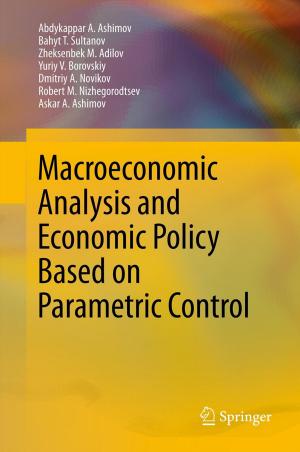Institutional Analysis and Praxis
The Social Fabric Matrix Approach
Nonfiction, Social & Cultural Studies, Political Science, Politics, Economic Policy, Business & Finance| Author: | ISBN: | 9780387887418 | |
| Publisher: | Springer New York | Publication: | September 3, 2009 |
| Imprint: | Springer | Language: | English |
| Author: | |
| ISBN: | 9780387887418 |
| Publisher: | Springer New York |
| Publication: | September 3, 2009 |
| Imprint: | Springer |
| Language: | English |
There has never been a better time for the social fabric matrix. As this book is being published, the idea that unregulated market capitalism leads to the best of all possible worlds has been thoroughly discredited. A series of economic and social problems have come to the forefront of national discussion and policy debates. There is now widespread acceptance that human activity, particularly the consu- tion of nonrenewable energy resources, has contributed to global warming. The lack of oversight of the financial industry encouraged reckless practices that endangered the stability of the entire financial system, prompting bailout efforts based on the fragile interdependence of the financial and economic systems. The shortcomings of our health care system are increasingly evident, including the growing number of uninsured citizens, the difficulties for businesses in offering health insurance, and the effects of health and health care on the ability of individuals and families to maintain a decent standard of living. Perhaps the best illustration of a complex system that cries out for coordinated policy-making is in the critical area of energy, where public and private decisions on energy policy not only have direct effects on consumer costs, but also have effects on global warming, local ecosystems, int- national relations, the health of our citizens, and the sustainability of companies and communities. In short, there is growing recognition of the interdependence of the economic system with the environment and the broader institutions of society.
There has never been a better time for the social fabric matrix. As this book is being published, the idea that unregulated market capitalism leads to the best of all possible worlds has been thoroughly discredited. A series of economic and social problems have come to the forefront of national discussion and policy debates. There is now widespread acceptance that human activity, particularly the consu- tion of nonrenewable energy resources, has contributed to global warming. The lack of oversight of the financial industry encouraged reckless practices that endangered the stability of the entire financial system, prompting bailout efforts based on the fragile interdependence of the financial and economic systems. The shortcomings of our health care system are increasingly evident, including the growing number of uninsured citizens, the difficulties for businesses in offering health insurance, and the effects of health and health care on the ability of individuals and families to maintain a decent standard of living. Perhaps the best illustration of a complex system that cries out for coordinated policy-making is in the critical area of energy, where public and private decisions on energy policy not only have direct effects on consumer costs, but also have effects on global warming, local ecosystems, int- national relations, the health of our citizens, and the sustainability of companies and communities. In short, there is growing recognition of the interdependence of the economic system with the environment and the broader institutions of society.















